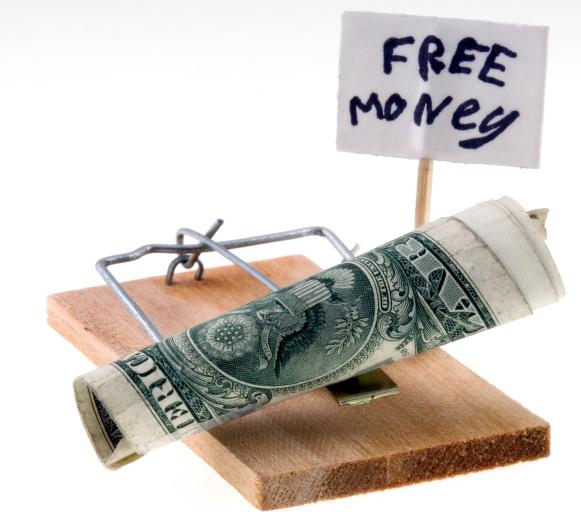
The explosion of the Internet has created new opportunities and new dangers for investors.
If you’re an online investment victim, the chances of getting your money back are slim.
Even in cases where government agencies recover money, the investor usually after several years gets back less than almost nothing!
The Internet serves as an excellent tool for investors, allowing them to easily and inexpensively research investment opportunities.
But the Internet is also an excellent tool for fraudsters!
That’s why you should always think twice before you invest your money in any “opportunity” you learn about through the Internet.
The Internet allows individuals or companies to communicate with a large audience without spending a lot of time, effort, or money.
Anyone can reach tens of thousands of people by building an Internet web site, posting a message on an online bulletin board, entering a discussion in a live “chat” room, or sending mass e-mails.
It’s easy for fraudsters to make their messages look real and credible, and it’s also nearly impossible for investors to tell the difference between fact and fiction!
A common fraud is to provide “unbiased opinions” and recommendations.
The fraudsters fail to disclose that they already have perhaps millions of shares of cheap insider stock and options in exchange for touting services.
In some instances, the fraudsters sell their stock or exercise their options immediately following their recommendations.
This is a deceptive practice commonly referred to as “scalping.”
The “scalped” online investors will usually never recover any of their investments.
Protect Yourself from Internet Scams!
The Internet is still growing and is a wild, ungoverned frontier.
While this may sound exciting, it also means that scams and illegal operations are rampant.
Internet scams, con games, illegal pyramid schemes…
There are so many “business opportunities” available on the Internet!
How do you know which one not to pick?
You need to protect yourself!
This is a list of ways you can use to find out if a company on the Internet is just trying to take your money and run or not.
This list is probably the best advice that anyone can give you to keep yourself from being taken!
1. Make sure they list contact information.
Internet scams normally do not.
You know what I am talking about: names, addresses, people that are involved with the site, phone numbers, etc.
An email address is fine when someone isn’t asking for money, but when companies are asking for your hard-earned cash…
An e-Mail isn’t enough in my opinion.
2. Does the company that you are checking out take credit cards?
It is extremely important that they do! If you use a credit card for your purchase and they are an Internet scam you can reverse the charges on the card.
You are going to have to provide some sort of proof (meaning they didn’t deliver what they were supposed to) but that is easy if you were scammed.
3. See what kind of return policy they have.
Most business opportunities should at least offer a 30-day trial when you are checking them out.
4. Lastly, go to a search engine and try to find out any dirt on the company.
This is hardly the most technical way to find stuff but you can always believe 10 or 20 complaints you find on the Web (that seem unresolved), as opposed to sales literature that you will find elsewhere.
Some fraudsters are using e-mail spam to promote stocks.
Fraudulent companies will send thousands of e-mails and make false comments on message boards through the market and through the opening of the market the following trading day.
These messages will falsely promote the company and drive up the price.
If the fraud goes as planned, this will cause a surge in the price and volume of the company’s stock.
When the price has skyrocketed, the defrauder sells his shares in the market “he has created,” realizing substantial profits per share.
This practice of driving up a price and then selling it is called “pump and dump.”










